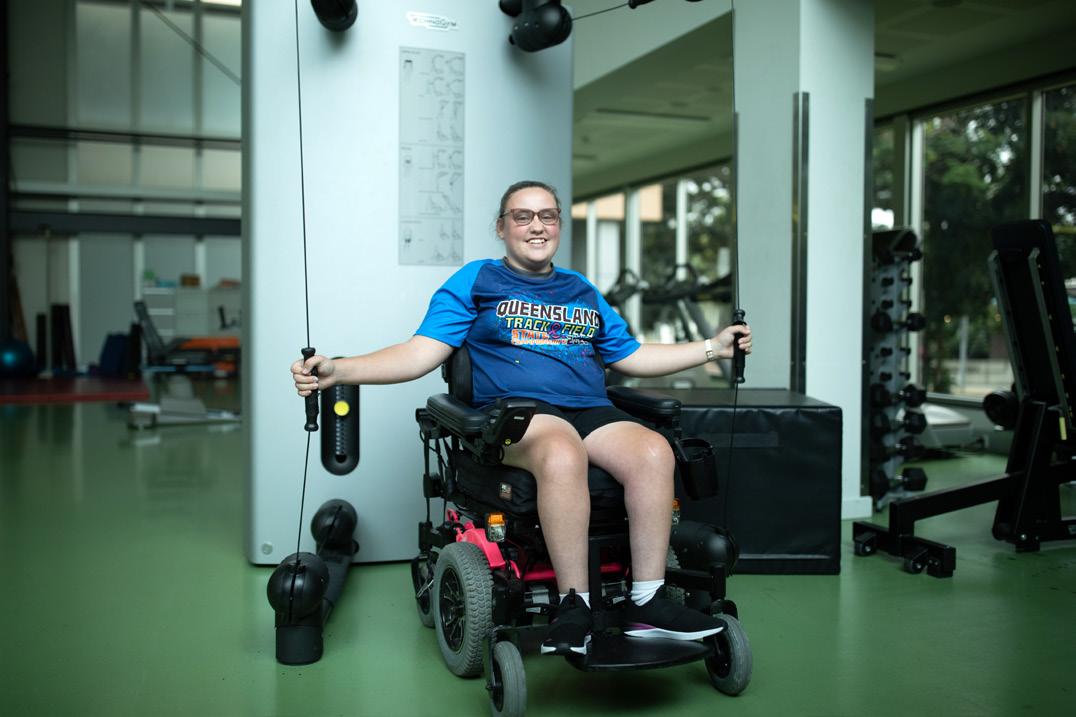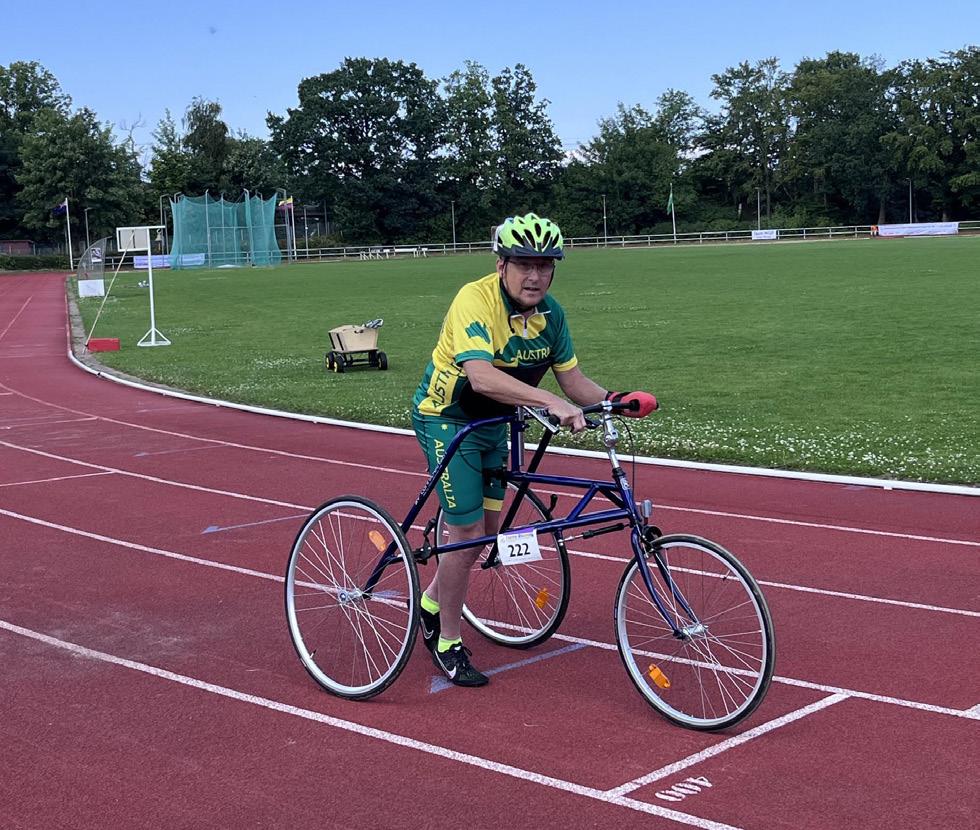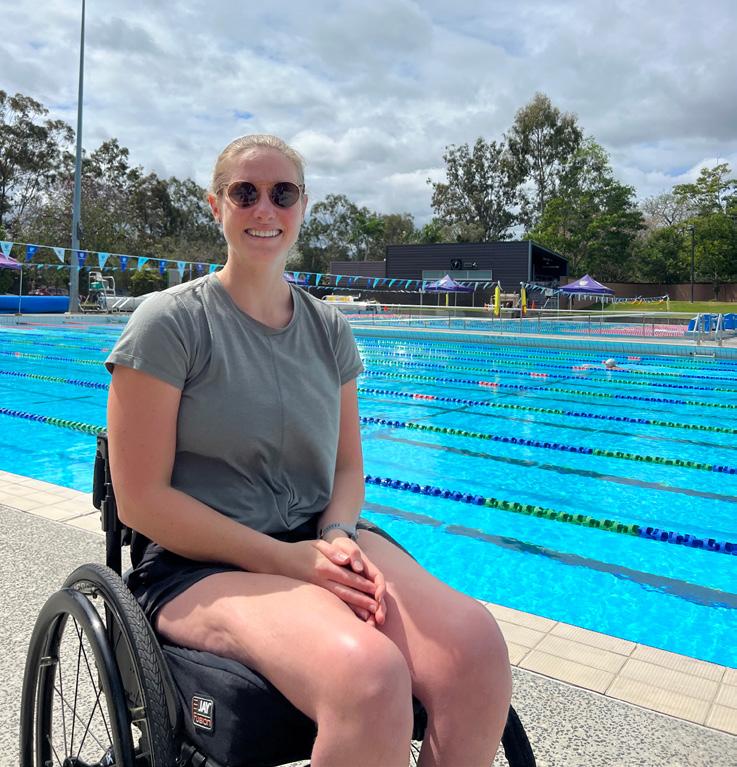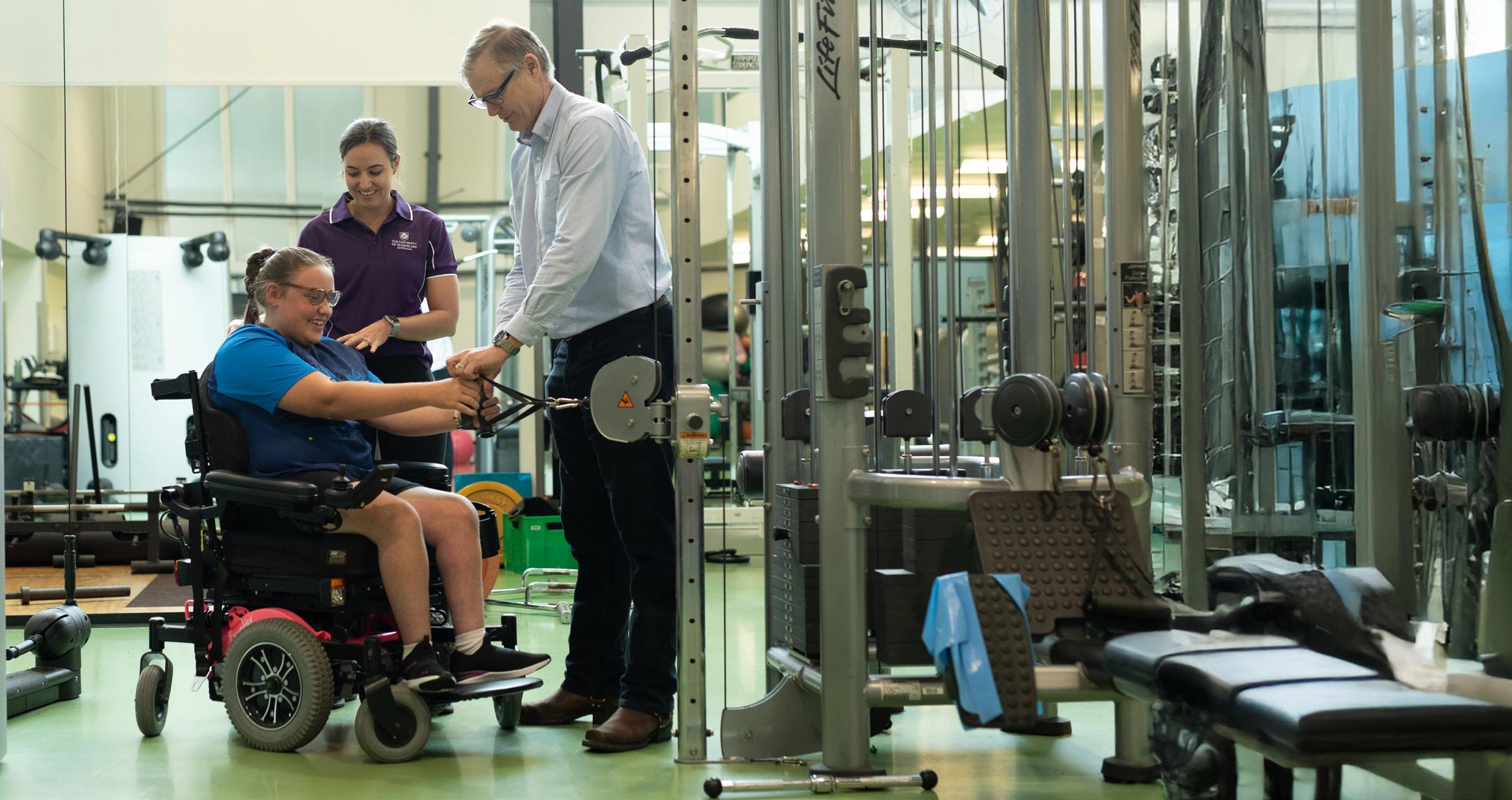
6 minute read
LINK TO... COVER STORY: PARASTART
ParaSTART- where it is just the beginning
By Jayne Keogh
Professor Tweedy leads ParaSTART, the Sports Training and Research Team program at the School of Human Movement and Nutrition Sciences at the University of Queensland.
This sports training project provides one-on-one and group-based training to anyone with a disability, specialising in people with high support needs in swimming, athletics, strength and conditioning.
“The program is about finding pathways for people with disabilities to re-engage through sport and a healthy lifestyle, not just those interested in high performance sport,” Tweedy told Link
“As a university we have access to every possible health discipline including medicine, dentistry, human movement and nutrition sciences, as well as all the therapies and allied health services.”
What makes ParaSTART different to other sports programs is that it is research and evidence based.

“How sport is good for people, but high support groups with severe needs have very low rates of participation and initiating that participation can involve considerable medical risk that can lead to adverse outcomes if not managed properly” he said. Our skilled team of clinicians and researchers can help deliver the findings that can enhance both rehabilitation and Paralympic level training.”
Since graduating from Human Movement Studies in 1984, Tweedy’s aim has been to assist people with disabilities lead physically active lives to improve health, fitness, functioning and quality of life. In his current role with the School of Human Movement and Nutrition Sciences, Tweedy has three main areas of activity - Research, Community Service and Teaching. Research is conducted in two main areas, evaluating physical activity interventions for people with disability in community settings and Paralympic classification. Community Service includes the ParaSTART program as well as the Adapted Physical Activity Program (APAP) a physical activity promotion program delivered to people with disability in their home or community setting. Teaching covers courses on physical activity and disability to undergraduate and postgraduate students of clinical exercise physiology at the university.
There are no costs for participants to be involved in the research component, however there are costs in the service delivery, and these costs usually fall under NDIS exercise physiology pricing.
“We try to keep costs as low as possible and work with philanthropic donations to keep it up and running,” he said.

“It requires a multi-disciplinary team to ensure safe and effective participation for our athletes with high support needs. Coaches have a background in exercise physiology, physiotherapy or occupational therapy. We liase with a medical professional for screening and problem solving when it comes to co-morbidities and utilise the dietetics and psychology to ensure the optimal outcome for participants.”
The program started in 2017 when participants were first recruited for the performance focused swim training study. “We have grown from three participants to 20 with a 100 per cent retention rate.”
Chloe Tookey was born with cerebral palsy, living a sedentary life confined to a wheelchair when she underwent surgery to improve her condition four years ago. The operation was not a success, so she investigated what was available to join into sport at a recreational level to help her become more active.
“Through a series of connections, I contacted ParaSTART at the university and my aim is to compete in the 2032 Olympics in Brisbane,” she said. “My interest is track and field in seated throwing, shot-put and 100 metres Frame Running.” In Frame Running, previously known as RaceRunning, the participant is propelled by a tricycle on all three wheels. It is designed for those with high support needs, with a saddle and a seat which is designed for trunk and weight support. It is propelled entirely by the legs, because it is running, and the arms are only used to steer.

“Most of us have similar impairments to me, like cerebral palsy, it’s in a classification system for people who can’t functionally run,” she said.
The 18-year-old will be 27 when the five Olympic rings arrive in Brisbane. She has been engaged in hobby sport for 10 years and determined to achieve her dream. In terms of the physicality values of ParaSTART, she has been discharged from all her medical teams. “My hips are now normal, they have migrated into position, entirely due to the university training.”
But she is quick to point out the psychological benefits of her journey. “I became a different person when I joined the program, everything about me changed for the better. We have become a little community at ParaSTART and because I have been one of the longest on it, I am regarded as a senior! I enjoy seeing the children coming into it at grass roots level. It’s rewarding being a role model.”
Last year Susanna Wills, 30, was riding her mountain bike at an adventure park when she suffered a T12 injury and broke her back. She was airlifted to hospital where she stayed for five months.
‘With no feeling from the waist down and in a wheelchair, I knew I had to do something. I heard about ParaSTART and since joining the program have improved a lot mentally and physically, supported by the practitioners all the way.
“I am a freestyle swimmer and love the competitive side of the sport, so my goal is the Paralympics,” she said. “I can see what is possible and how could I ever get into something like that without this sort of support?”
A structural engineer, she works mainly at her desk. The training has reduced her nerve pain and helped her endurance, as she is able to be sedentary for longer and concentrate. It also assists with mental clarity, another positive for sports training. “I have more confidence in myself and my abilities and am now investigating other sports.”

At the other end of the age span is Malcolm Wilson who five years ago suffered a stroke at aged 53, causing injury to his brain and right side, which was a shock for the fit, non-smoker, and non-drinker who swam, ran and cycled to work daily. Wilson came home from hospital in a wheelchair, but now only needs a wheelie walker or walking stick to move around. Forced to retire early and deprived of his fitness pursuits, he and his wife Cindy started to research what was possible for him as a sport.
“I heard that the University of Queensland was starting up this new program and were having a ‘try day’, so we went along.” He slowly hopped onto a running frame, and a new world opened for him. According to Cindy he is now doing 5k runs and is fully engaged emotionally and physically. But is not interested in the Paralympics, his focus is on keeping all the muscles working, which allows him to do simple things like dressing himself that he struggled with before,” she said.
Both are strong supporters of Frame Running as it has helped re-engage with people with disabilities and believe it should be a Paralympic sport.



